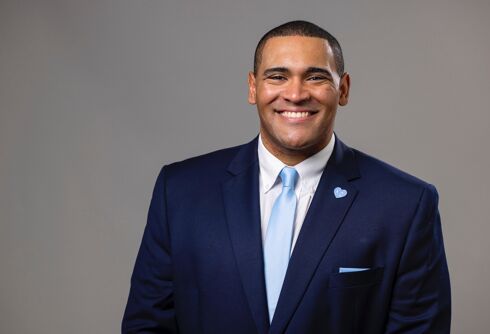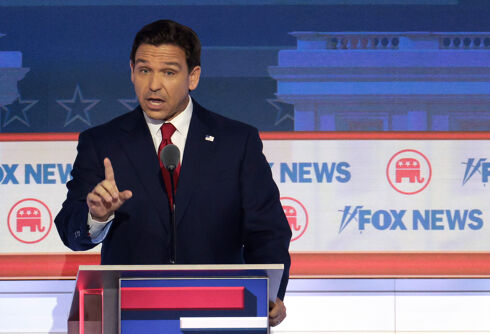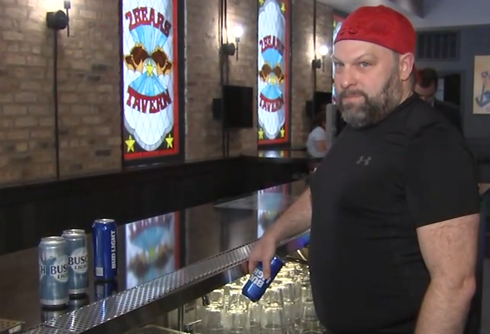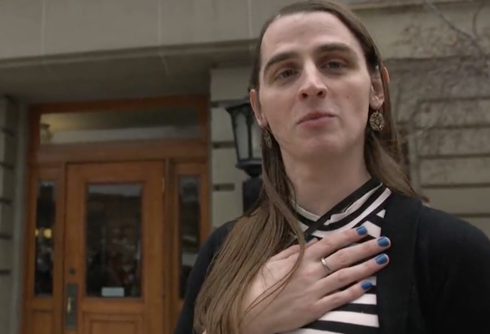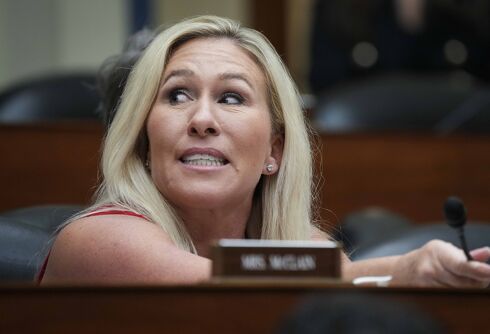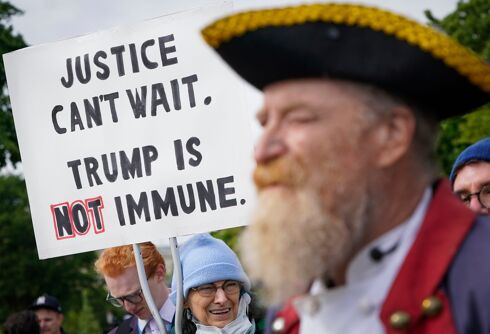The rock band boygenius protested the anti-LGBTQ+ policies in which state this week?

Tennessee
The group traded their usual suits and ties for drag-inspired looks at their recent Nashville show in a literal “F**k You” to Tennessee’s anti-LGBTQ+ Gov. Bill Lee (R).
“I would like you to scream so loud that Governor Bill Lee can hear you,” singer-songwriter Phoebe Bridgers said on stage. "Can we say, ‘F**k Bill Lee’ on three?”
Transgender influencer Dylan Mulvaney recently released a video addressing the transphobic backlash she received after collaborating with Bud Light beer. What did Mulvaney say in her video?

She received no support from Bud Light.
In her video, Mulvaney said, "I was waiting for [Bud Light] to reach out to me, but they never did.... What transpired from that video was more bullying and transphobia than I could have ever imagined.”
“For a company to hire a trans person and then not publicly stand by them is worse, in my opinion, than not hiring a trans person at all,” she added.
Never Miss a Beat
Subscribe to our newsletter to stay ahead of the latest LGBTQ+ political news and insights.
Which governor signed two executive orders protecting LGBTQ+ rights this week?

Katie Hobbs (Arizona)
Gov. Katie Hobbs signed two orders on Tuesday. The first bans state agencies from promoting or funding conversion therapy, and the second allows state employee health insurance plans to cover gender-affirming surgery, removing a 2017 policy that banned plans from doing so.
Congressional Democrats introduced a bill to ban what anti-LGBTQ+ practice this week?

The LGBTQ+ panic defense
Out Rep. Chris Pappas (D-NH) in the House and Sen. Ed Markey (D-MA) in the Senate introduced bills on Monday to ban the LGBTQ+ panic defense. The LGBTQ+ panic defense is a legal defense strategy used to justify violent crimes against LGBTQ+ people due to “panic” over their sexual orientation or gender identity.
“No one’s sexual orientation or gender identity is a defense for assault or murder, and it is time Congress follows the lead of states that have already banned this defense in their courts,” Pappas said.
In a recent decision, the Supreme Court may have sent a secret message to Ron DeSantis hinting that he is losing his war with Disney. What constitutional clause did the court allude DeSantis violated?

The Contracts Clause
In the Moore v. Harper decision, the Supreme Court ruled that federal courts have the authority to regulate state administration of federal elections. The decision also explained that other areas of the Constitution grant federal courts the authority to regulate the actions of state legislatures. The example Roberts chose to use: the Contracts Clause, which DeSantis has been accused of violating by Disney.
Trans advocates scored wins in two states this week when federal judges issued temporary injunctions on portions of gender-affirming care bans. Which states were they?

Kentucky and Tennessee
In both states, judges blocked the parts of the bans that would have prevented trans youth from using puberty blockers or undergoing hormone therapy, though they allowed the portions blocking gender-affirming surgery to stand. Considering it is extremely rare for trans youth to undergo gender-affirming surgery, the injunctions are considered a huge victory for trans youth.
This week the Supreme Court ruled on a case involving a Christian U.S. postal employee who didn't want to work on Sundays. What did the Court decide?

A lower court should re-examine the issue.
In the case of Groff v. DeJoy, the Supreme Court asked a lower court to re-examine whether Gerald Groff, a U.S. Postal Service (USPS) worker, should be allowed not to work Sundays due to his Christian evangelical religious beliefs.
While legal precedent requires employers to “reasonably accommodate” workers’ religious practices, the Court told a lower court to re-examine the case by looking at whether his Sundays off would create “undue hardships” that substantially affect the post office's conduct.
Which drag-themed restaurant recently won a legal victory against Florida's drag performance ban?

Hamburger Mary's
Hamburger Mary’s, a restaurant that features drag waitresses and family-friendly drag performances, won a legal victory against Florida's drag ban.
The judge called the law "vague and overbroad" and said it could apply to burlesque shows or a skit at a family BBQ. He determined the law would unfairly harm Hamburger Mary’s business and its free speech rights.
The Supreme Court ruled in "303 Creative LLC v. Elenis" today that some religious workers can refuse LGBTQ+ clients. What was the plaintiff's job?

Web designer
Christian web designer Lorie Smith said that she "believes that God is calling her to promote and celebrate His design for marriage… between one man and one woman only" by making websites for weddings. She worried that she would violate Colorado's anti-discrimination law if she refused same-sex couples as she planned.
The Court sided with her in a 6-3 decision.
“Today, the Court, for the first time in its history, grants a business open to the public a constitutional right to refuse to serve members of a protected class,” Justice Sonia Sotomayor wrote in her dissent.
This past Monday, June 26 was the 20th anniversary of what major LGBTQ+ Supreme Court victory?

Lawrence v. Texas
Lawrence v. Texas - which ended sodomy laws in all 50 states - was decided on June 26, 2003. Since then, states aren't allowed to ban private, consensual sex between two adults, as many states did prior to the ruling.
"The petitioners [Lawrence and Garner] are entitled to respect for their private lives. The State cannot demean their existence or control their destiny by making their private sexual conduct a crime," Justice Anthony Kennedy wrote for the majority.



























































